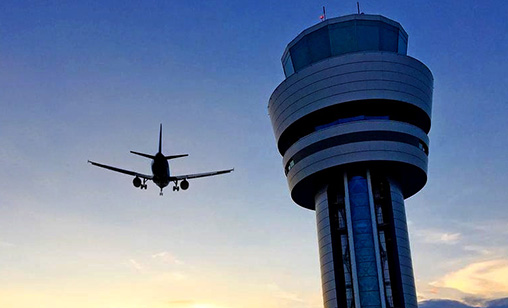Air Cargo
Spoofing skyrockets post pandemic
June 1st 2025
Interference of global positioning system (GPS) signals for commercial aircraft has skyrocketed in the last few years, the International Air Transport Association (IATA) reports. Read More »
“GPS signal loss events increased by 220% between 2021 and 2024 and with continued geopolitical tensions, it is difficult to see this trend reversing in the near term,” IATA senior vice president, operations, safety and security, Nick Careen, said.
 |
Recently, IATA and the European Union Aviation Safety Agency (EASA) have published a comprehensive plan to mitigate the risks stemming from global navigation satellite system (GNNS) interference as a linchpin for a joint workshop on GNSS interference.
IATA and EASA want to reinforce redundancies built into the system to keep flying safe. The International Civil Aviation Organisation (ICAO) must take the next step forward to global alignment of standards, guidance and reporting at the ICAO Assembly later this year.
“To stay ahead of the threat, aviation must act together and without delay,” Careen said.
Given the increase in interference with GNSS signals, a May industry workshop concluded a broader and more coordinated approach is needed.
It must focus on four key areas: improved information gathering, stronger prevention and mitigation measures, more effective use of infrastructure and airspace management and enhanced coordination and preparedness among relevant agencies.
Reported incidents of interference with GNSS signals, or jamming and spoofing, have been increasing across Eastern Europe and the Middle East.
Similar incidents have been reported in other locations globally and the initial industry response focused on containing those GNSS interference incidents.
“GNSS disruptions are evolving in frequency and complexity. We are no longer just containing GNSS interference, we must build resilience. The evolving nature of the threat demands a dynamic and ambitious action plan,” EASA Flight Standards Director, Jesper Rasmussen, said. “Through collaboration with partners in the European Union and IATA and by supporting ICAO, we are committed to keeping aviation safe, secure and navigable.”
The workshop recommends several work streams to defeat spoofing.
They are:
* Enhanced Reporting and Monitoring, including agreement on standard radio calls for reporting GNSS interference and standardized notice to airmen (NOTAM) coding, defining and implementing monitoring and warning procedures and ensuring that dissemination of information is without delays to relevant parties for formal reporting.
* Prevention and Mitigation, especially tightened controls on export and licensing restrictions of jamming devices, improved situational interference with portable spoofing detectors and rapid and reliable GPS equipment recovery after signal loss or interference.
* Infrastructure and Airspace Management and the maintenance of backup for GNSS with a minimum operational network of traditional navigation aids. Also better utilization of military air traffic management capabilities; notably tactical air navigation networks and real time airspace GNSS incident monitoring.
Anna Travers says:
September 17th 2025 03:17am